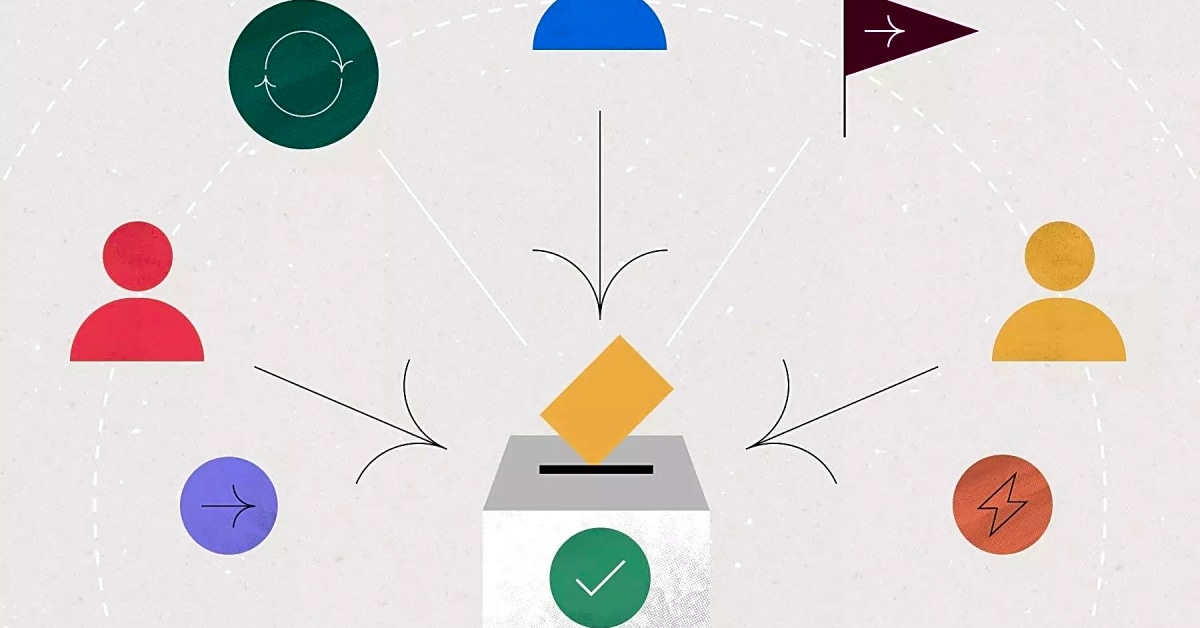When it comes to leadership styles, democratic leadership is one of the most widely recognized and respected approaches. It is a style that emphasizes collaboration, inclusivity, and collective decision-making. In this article, we will delve deeper into the characteristics of democratic leadership and explore how it differs from other leadership styles.
Democratic leadership is often referred to as participative leadership, as it encourages team members to actively participate in decision-making processes. This style values the input and ideas of all team members and aims to create a sense of shared responsibility and ownership among the group. It is based on the belief that when individuals feel empowered and involved in decision-making, they are more motivated and committed to achieving shared goals.
In this article, we will discuss the key characteristics of democratic leadership, including its principles, benefits, and potential drawbacks. By understanding these characteristics, you will gain a better understanding of how this style of leadership can be applied in various situations and how it can impact team dynamics and overall success.
First and foremost, democratic leadership is all about teamwork. As a democratic leader, you involve your team members in decision-making processes and encourage their input. This not only fosters a sense of trust and inclusivity within the team, but it also allows for diverse perspectives and ideas to be shared. For example, when faced with a problem, a democratic leader would hold a group discussion to gather input from all team members before making a decision. This promotes effective problem-solving and empowers team members to take ownership of their work.
Another important characteristic of democratic leadership is open communication. A democratic leader values transparency and encourages open dialogue between team members. This creates a sense of trust and encourages team members to share their thoughts and concerns freely. In addition, this style of leadership promotes active listening, where leaders actively listen to their team members’ ideas and feedback without judgment or bias. This not only makes team members feel valued but also helps leaders make more informed decisions.
Furthermore, democratic leaders believe in the equality of all team members. They do not view themselves as superior to their team but rather as part of the team. This creates a sense of camaraderie and fosters a positive working environment. It also allows team members to feel comfortable sharing their opinions and taking on leadership roles when necessary. For instance, a democratic leader may delegate tasks to team members based on their strengths and expertise, rather than their job titles.
Lastly, democratic leadership promotes a participative and empowering work culture. By involving team members in decision-making processes and encouraging open communication, this leadership style creates a sense of ownership and accountability among team members. As a result, team members feel motivated to take on new challenges and push themselves to achieve their goals.
Promoting Open Communication
A democratic leader values transparency and encourages open dialogue between team members. This type of leadership style emphasizes the importance of open communication in decision-making processes and problem-solving. By promoting open communication, a democratic leader creates an environment where team members feel comfortable sharing their ideas, concerns, and suggestions.
Believing in Equality
In a democratic leadership style, there is a strong emphasis on equality among team members. This means that the leader does not see themselves as above their team, but rather as a part of it. This fosters a sense of camaraderie and creates a positive working environment where everyone is valued and their opinions are heard.
Creating an Empowering Work Culture
One of the key characteristics of democratic leadership is its focus on creating an empowering work culture. This style of leadership involves involving team members in decision-making processes and encouraging open communication. By doing so, it promotes a sense of ownership and accountability among team members.
In a democratic leadership setting, team members are given the opportunity to voice their opinions and ideas, and their input is valued and taken into consideration when making decisions. This not only leads to more diverse and innovative ideas, but also fosters a sense of empowerment among team members as they feel like their voices are being heard.
Moreover, by involving team members in decision-making processes, democratic leadership promotes a culture of accountability. When team members feel like they have a say in the decisions being made, they also feel responsible for the outcomes of those decisions. This encourages them to take ownership of their work and strive for success.
Encouraging Teamwork
One of the key characteristics of democratic leadership is the emphasis on teamwork. As a leader, you involve your team members in decision-making processes and encourage their input.
This level of collaboration and open communication allows for a more inclusive and diverse range of perspectives, leading to better decision-making and problem-solving. By involving team members in the decision-making process, you also foster a sense of ownership and accountability within the team.
Encouraging teamwork also promotes a positive and supportive work culture. When team members feel valued and included, they are more likely to be motivated and engaged in their work. This can lead to increased productivity and higher job satisfaction.
Furthermore, democratic leaders prioritize equality among team members. This means that everyone’s ideas and opinions are given equal weight, regardless of their position or rank within the team. This not only promotes a sense of fairness but also allows for a more diverse range of ideas to be considered.
Incorporating teamwork into your leadership style can have many benefits for both you as a leader and your team as a whole. By encouraging collaboration, communication, and equality, you can create a more effective and successful team dynamic.
In conclusion, democratic leadership is a highly effective style of leadership that promotes teamwork, open communication, equality, and an empowering work culture. By incorporating these characteristics into your leadership style, you can become a more effective leader and inspire your team to reach new heights.
